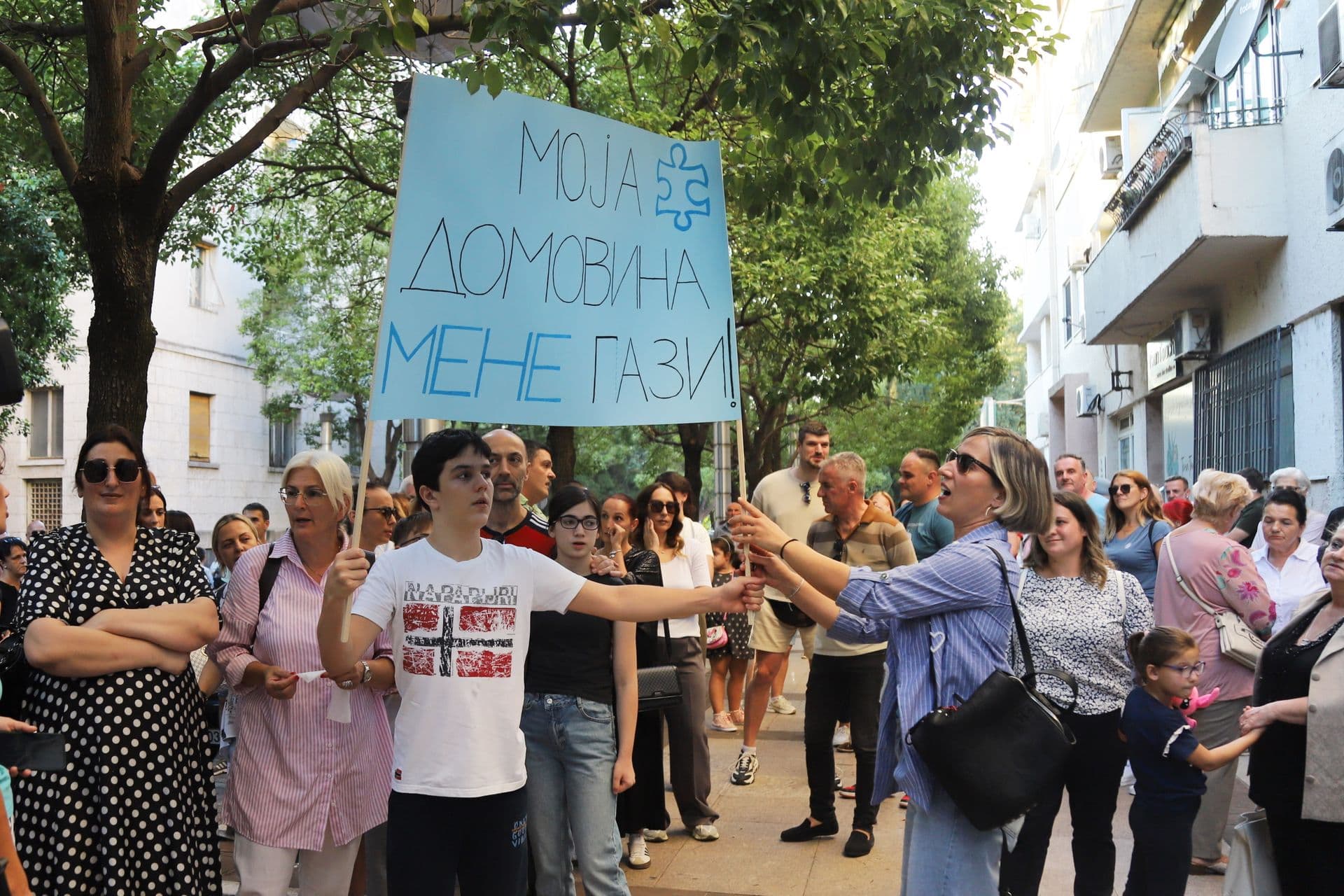Lifestyle
Parents Threaten to Bring Children to Parliament Over Autism Center Delay

Parents and caregivers of children with autism in Montenegro have announced plans to bring their children to the Skupština (Parliament) of Podgorica and the local municipality if the government fails to identify a location for a new day center by November 2, 2023. This ultimatum follows a lack of response from local authorities regarding urgent requests for establishing a facility that meets the needs of these children.
Goran Laković, a representative from the non-governmental organization NVO “Niste sami,” expressed frustration over the government’s inaction. He stated, “We have sent letters to all 61 council members, urging them to address this matter promptly. They have until November 2 to publicly announce their decision on a location.” Parents are discontent with the temporary measures currently in place, asserting that the existing day center is inadequate.
The parents recently organized a protest, demanding that a suitable location for the new center be secured within 15 days. They voiced their concerns over the systemic failures in providing necessary support and resources for their children, emphasizing the strain it places on families both financially and emotionally. “We can no longer afford to manage without professional help, which is severely lacking in the country,” Laković added.
Promises made by the city regarding a potential location for the center have not materialized. Originally, parents were informed that a decision would be reached within a week, but that deadline has since passed without any communication. Laković explained that an urgent reminder was sent to local authorities just days ago, with no response received.
In their quest for a suitable site, parents are seeking a location on the outskirts of the city. They rejected an offer of land in Masline, which was only 2,000 square meters and located within a residential area, deeming it unsuitable for their needs. A larger site of approximately 12,000 square meters in Mareza has also been proposed, as well as a location in Kakaricka Gora closer to the city.
Laković insists that decisions should be based on professional recommendations rather than political considerations. He called for an international competition for the design of the day center and stressed the importance of transparency in the decision-making process. “If they believe our protest will fade away without action, they are mistaken. We are prepared to take further steps to advocate for our children,” he stated.
A significant demand raised during the protests was the establishment of a registry for individuals with autism. At a session of the Montenegrin Parliament in late July, Vojislav Šimun, the Minister of Health, acknowledged the request and indicated that the Institute for Public Health had been tasked with creating this registry. He projected that it would be completed by the end of this year or early next year.
In response to inquiries regarding the status of the autism registry, the Institute for Public Health clarified that it currently does not maintain such a registry, nor is establishing one within its legal framework. They noted that while a three-year project aimed at reforming the disability assessment system is underway, it does not specifically address autism.
Laković criticized the Institute’s stance, stating, “It is their legal obligation to maintain these registries. Those who claim otherwise should resign, as they clearly do not understand their responsibilities.” He pointed out that the lack of accurate data hampers the development of effective policies and programs.
The parents’ frustrations extend to the broader treatment of children with autism in Montenegro. They argue that inclusive practices must be tailored to the needs of each child, and that access to therapies, such as speech therapy, needs to be improved. The call for systemic change is urgent, as parents fight not only for their children but for future generations facing similar challenges.
This is not the first time parents of children with autism have taken to the streets. A previous protest on April 2 yielded no concrete results, and parents are growing increasingly impatient with what they perceive as governmental neglect.
In a recent communication from the cabinet of President Jakov Milatović, it was noted that the government allocates millions of euros for treatments abroad. However, many believe that these funds could be used to establish modern centers in Montenegro, allowing families to stay together while their children receive the necessary support locally.
As the deadline approaches, the commitment of local authorities to address the needs of children with autism remains uncertain. Parents stand ready to escalate their actions if their demands continue to go unanswered.
-

 Health3 months ago
Health3 months agoNeurologist Warns Excessive Use of Supplements Can Harm Brain
-

 Health3 months ago
Health3 months agoFiona Phillips’ Husband Shares Heartfelt Update on Her Alzheimer’s Journey
-

 Science2 months ago
Science2 months agoBrian Cox Addresses Claims of Alien Probe in 3I/ATLAS Discovery
-

 Science2 months ago
Science2 months agoNASA Investigates Unusual Comet 3I/ATLAS; New Findings Emerge
-

 Science1 month ago
Science1 month agoScientists Examine 3I/ATLAS: Alien Artifact or Cosmic Oddity?
-

 Entertainment5 months ago
Entertainment5 months agoKerry Katona Discusses Future Baby Plans and Brian McFadden’s Wedding
-

 Science1 month ago
Science1 month agoNASA Investigates Speedy Object 3I/ATLAS, Sparking Speculation
-

 Entertainment4 months ago
Entertainment4 months agoEmmerdale Faces Tension as Dylan and April’s Lives Hang in the Balance
-

 World3 months ago
World3 months agoCole Palmer’s Cryptic Message to Kobbie Mainoo Following Loan Talks
-

 Science1 month ago
Science1 month agoNASA Scientists Explore Origins of 3I/ATLAS, a Fast-Moving Visitor
-

 Entertainment2 months ago
Entertainment2 months agoLewis Cope Addresses Accusations of Dance Training Advantage
-

 Entertainment4 months ago
Entertainment4 months agoMajor Cast Changes at Coronation Street: Exits and Returns in 2025









